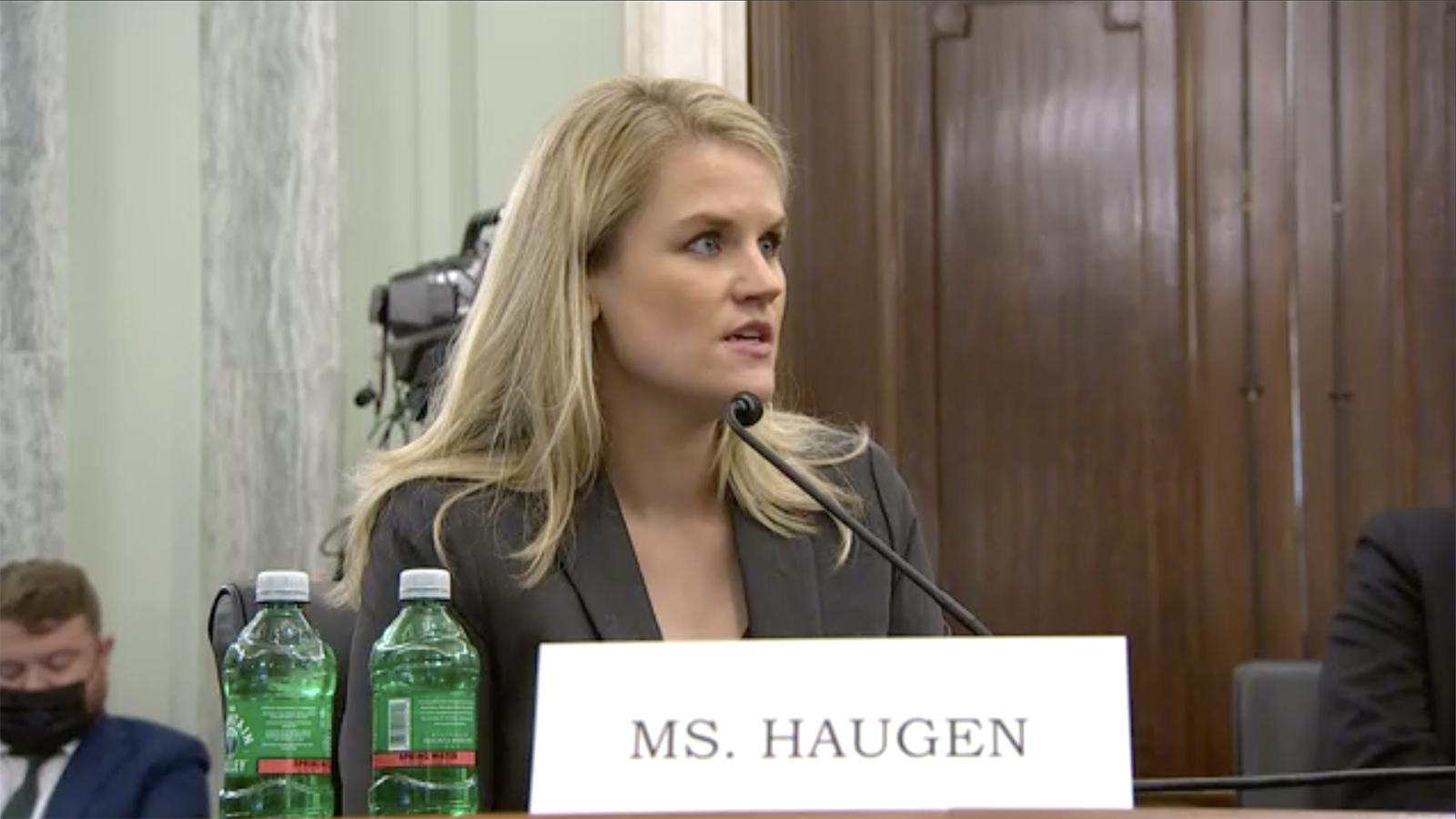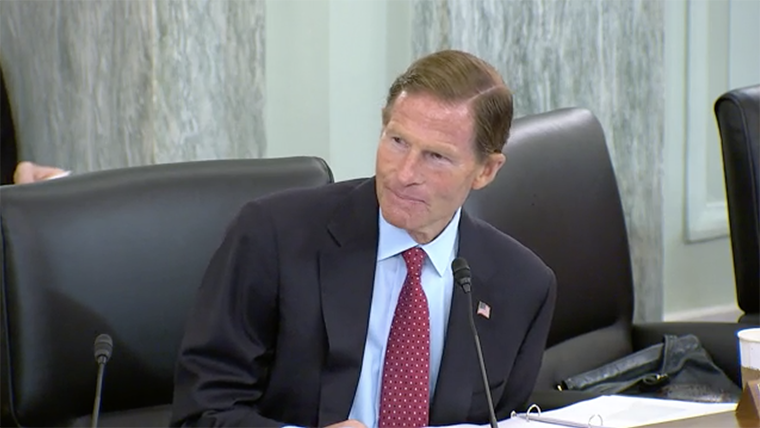
Facebook whistleblower Frances Haugen detailed how the social media platform could become a better environment, saying it could introduce transparency measures and small frictions, and move away from the “dangerous” engagement-based ranking system.
This would recenter the methods of amplification and won’t focus not on “picking winners or losers in the marketplace of ideas,” she told senators on Tuesday.
“On Twitter, you have to click through on a link before you reshare it. Small actions like that friction don’t require picking good ideas and bad ideas, they just make the platform less twitchy, less reactive. Facebook’s internal research says each one of these small actions, dramatically reduces misinformation, hate speech and violence-inciting content on the platforms,” Haugen said.
She advocated for chronologically-ordered content instead.
“I’m a strong proponent of chronological ranking, ordering by time, with a little bit of spammed emotion. Because I think we don’t want computers deciding what we focus on, we should have software that is human-scaled, or humans have conversations together, not computers facilitating who we get to hear from,” Haugen said.
In addition, she encouraged a privacy-conscious regulatory body working with academics, researchers and government agencies to “synthesize requests for data” because currently, the social media giant is not obligated to disclose any data.
“Even data as simple as what integrity systems exist today and how well do they perform?” she suggested. “Basic actions like transparency would make a huge difference.”
What does engagement-based ranking system mean?
Facebook, like other platforms, uses algorithms to amplify or boost content that receives engagement in the form of likes or shares or comments. In Facebook’s view, this helps a user “enjoy” their feed, Haugen explained.
“The dangers of engagement-based ranking are that Facebook knows that content that elicits an extreme reaction from you is more likely to get a click, a comment or reshare,” which aren’t necessary for the user’s benefit, she added. “It’s because they know that other people will produce more content if they get the likes and comments and reshares. They prioritize content in your feed so that you will give little hits of dopamine to your friends so they’ll create more content.”





More News
‘I’ve Never Seen Anything Like It.’ Tornado Devastates Arkansas Town.
N.J. Officials Briefly Close Popular Boardwalk, Citing ‘Civil Unrest’
Wayne Brady and Nichelle Lewis on Striving for Excellence in ‘The Wiz’